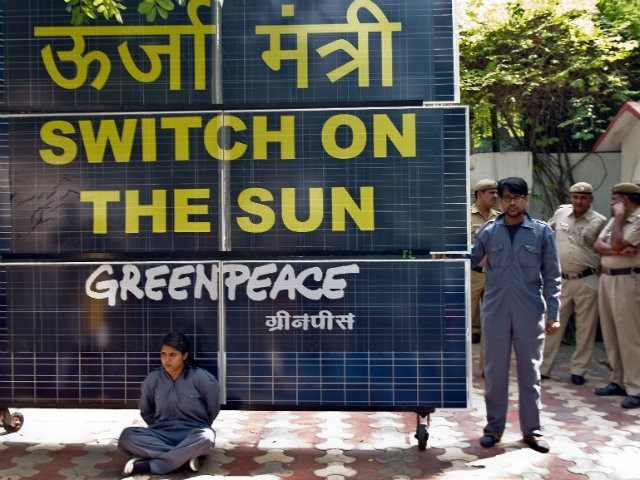The Indian government has just outlawed Greenpeace.
Naturally, Greenpeace are spinning this as a terrible injustice and a blow for freedom of speech.
“This is an extension of the deep intolerance for differing viewpoints that sections of this government seem to harbour,” Vinuta Gopal, the interim executive director of Greenpeace, said in a statement.
Alternatively, you could argue, it’s the Indian government doing what not even Putin’s Russia was capable of doing when push came to shove (during the Greenpeace Arctic 30 affair): telling this richly-funded, pan-global outfit of vexatious, mendacious, bleeding heart meddlers exactly where they can stick their environmental activism.
The ban has been introduced on the technical grounds that Greenpeace has violated various rules in the southern Indian state where it was registered, Tami Nadu. Allegedly it has “fraudulently” conducted its business by falsifying balance sheets and other violations – charges which Greenpeace is now contesting.
But whatever the ostensible reasons, this is clearly a case of Prime Minister Narendra Modi seeking to show the green NGO that he is not going to allow India’s economic development to be hamstrung by green activism.
In this he is likely to receive sympathy from the majority of his people. Sure India has its environmental problems – such as the pall of smog that hangs over Delhi – but it also has a burgeoning middle class hungry for a better standard of living. Like China, India has made it clear that it is going to put industrial progress before fashionable Western concerns about issues like “climate change”.
Greenpeace hardly helped its cause locally by deciding – with characteristic high-handed arrogance – to assault one of India’s most valuable export industries: tea.
Last year it produced a report called Trouble Brewing On Indian Tea claiming that Indian tea was awash with hazardous pesticides – and suggesting that it was not safe for export to the US, the UK and Europe.
Given that tea is India’s second largest employer – with 3,500,000 workers employed in over 1,500 tea estates – this was hardly a sensible way of winning Indian friends and influencing Indian people.

COMMENTS
Please let us know if you're having issues with commenting.